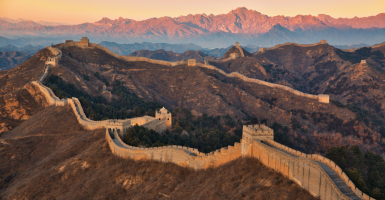The Chinese government is tightening its control over free speech in China. Once sheepish in the face of censorship accusations, China is now touting its “internet sovereignty” as something to be admired and adopted.
The Central Commission for Discipline Inspection, which also spearheads the anti-corruption campaign, recently conducted a two-month examination of the Communist Party’s Central Propaganda Department.
Despite the virtual confines of the “Great Firewall” and the physical imprisonment of hundreds of journalists, lawyers, civil society leaders, and activists, the commission assessed its current propaganda levels as insufficient.
The inspection team’s leader, Wang Haichen, said the news propaganda “does not do enough in applying the principle of the party controlling the media in weak points like new media, or in coordinating thought and political work at universities.”
After the Chinese government blocked Facebook and Twitter from the mainland in 2009, it launched its own social media network, Sina Weibo. The Chinese government has also shut down more than 20 million WeChat accounts since August 2013, including widely followed “public accounts” that offered current affairs commentary.
One year later, foreign instant messaging services, including Korea’s KaKao Talk, were also suspended from the mainland for their alleged vulnerability to being used as a platform for spreading “terrorism” messages.
By July 2015, at least 248 activists and lawyers were interrogated, detained, or had their homes and offices raided.
In January 2015, foreign textbooks were banned from schools, and another 50 websites and 133 WeChat accounts were closed to stymie “distorting history of the Communist Party and national history.” By July 2015, at least 248 activists and lawyers were interrogated, detained, or had their homes and offices raided. Twenty-five were still missing or in custody at year’s end.
To measure the tautness of the Communist Party’s reins on the media, ProPublica launched its “Inside the Firewall: Tracking the News That China Blocks” project on Nov. 17, 2014. Every day since then, the nonprofit newsroom has checked the accessibility of the home pages of 18 international news organizations from browsers within China.
The only five not blocked are The Washington Post, BBC, CNN, The Huffington Post, and The Guardian.
Still, that partial limitation isn’t satisfactory for Chinese President Xi Jinping’s crusade against the “Western values” of free speech and democracy.
Xi’s recent clampdown on the internet should be viewed as a component of China’s “three warfares” strategy involving legal warfare, public opinion warfare, and psychological warfare.
According to Heritage Foundation fellow Dean Cheng:
Public opinion/media warfare is the struggle to gain dominance over the venue for implementing psychological and legal warfare. It is seen as a form of warfare independent of armed confrontation or actual hostilities. Indeed, it is perhaps understood most accurately as a constant, ongoing activity aimed at long-term influence of perceptions and attitudes.
Public opinion warfare uses the medium of news outlets, television, books, movies, and the internet to influence foreign and domestic public opinion of China.
The crackdown on free speech in China should be understood in the broader context of Chinese attempts to control public opinion through fear, intimidation, and censorship. The U.S. should not hesitate to strongly oppose these suppressions and voice its support for the basic rights of Chinese people to free speech and access to information.
































